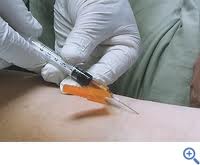DUI cases are complicated.
The economic impact on a client can be huge (i.e. fines, attorney fees, loss of employment and insurance costs, etc). Further, some clients have huge issues with their employment if they are even accused of a DUI offense.
Recently, we had to assist two clients with a number of these important legal and economic issues. The first was a husband and father who had never been in trouble in his life. One night, in a moment of very bad judgment, he decided to drive home from a party where he had been drinking very heavily. On his way home, he lost control of his car, and went into a ditch.
Before his car left the road, he hit a mailbox - which flew through the air and hit an elderly man in the leg (taking out his garbage), breaking the leg of the elderly man. Because of how the law worked, this husband/father (and owner of a small family business which supported the family and others) was facing a minimum of one year in prison.
However, because of some issues we were able to locate in the arrest procedure, we were able to negotiate a much lower sentence, and the client did not have to report for that sentence until after the holidays. This way, he can ready his family and his family's business for the time he will have to spend in jail. This was huge to the client and his family.
The second was a woman who is in the last months of her nursing degree. She is currently employed as a RN-in-training (big hospital), and the OVI arrest has frightened her about her RN employment possibilities. Due to some issues we were able to locate in connection with the arrest, she was offered a plea to a reckless operation - a huge reduction for her.
This will look much better on her driving record - and should provide her with a significantly strong explanation to any current or prospective employer about what happened on one, out-of-the-ordinary, night.
As we stated above, it is important to look at all of the personal and economic impacts a DUI arrest has on a client. Its not always just about the law and the police report.














